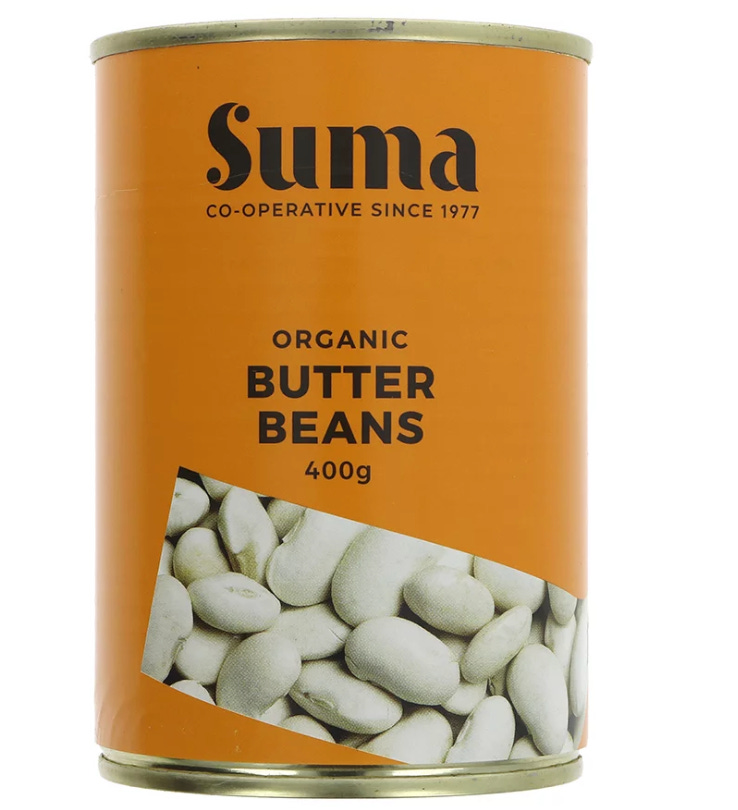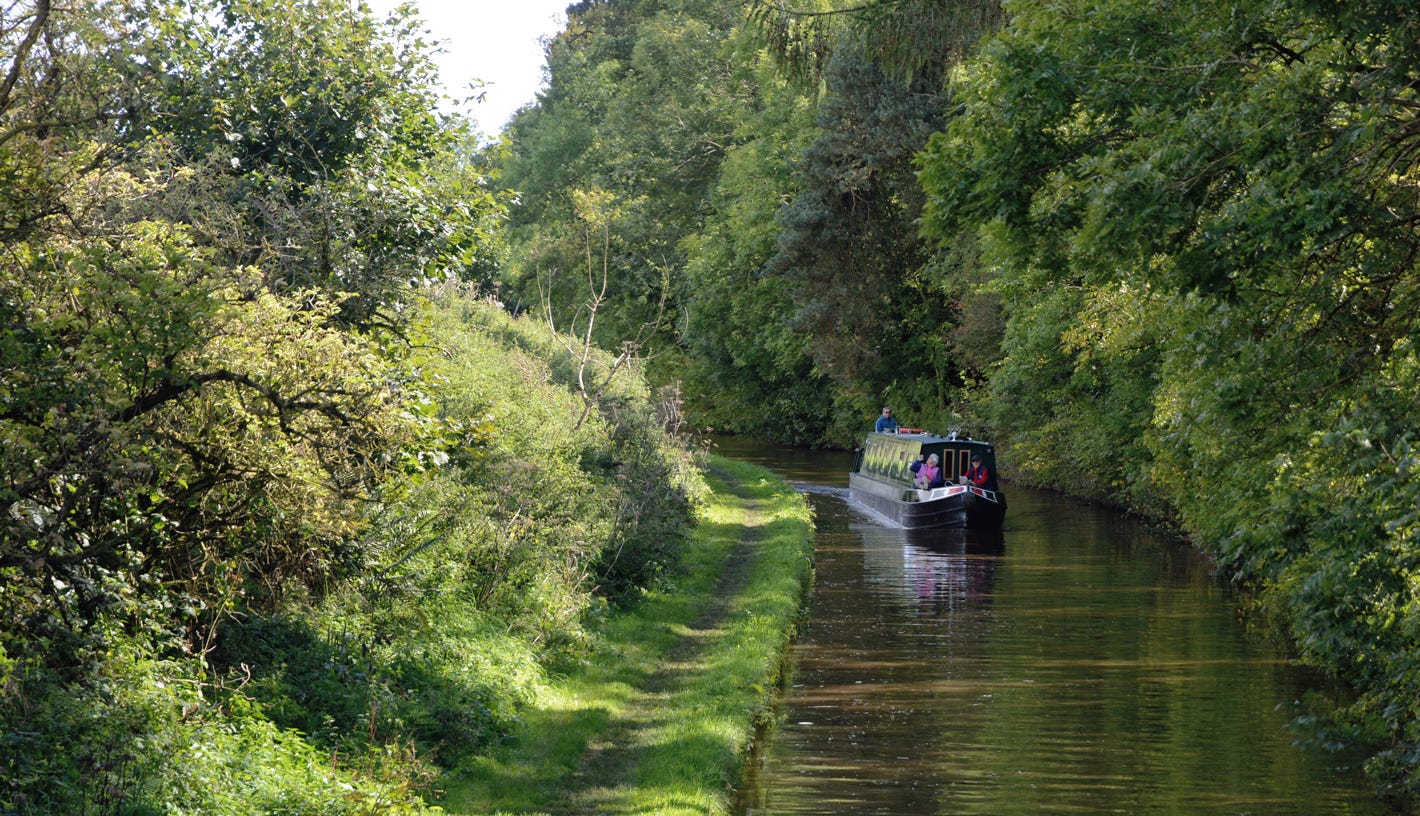One day, while walking down the supermarket aisle of tinned and dried legumes and grains, I noticed a brand labelled organic for just a few pennies more than the supermarket brand. On a closer look at the packaging, below the simple logo the brand claimed to be a local “co-operative since 1977”.
Being a single parent, I still couldn’t afford to buy from independent whole food stores, but these tins and packaging looked a cheap-enough, healthy and ethical option. The packaging was transparent, saying exactly from where the food was sourced.
The brand became a favourite at home. We had progressively shifted to a vegetarian diet after my tweenagers witnessed how it was that a once live fish ends up on your plate. However, it wasn’t until a few years later that I took an interest in the company itself and learned a little more about how it operates.
My son had finished school and had some time to kill before university semester, so I became as proactive as he in finding him a source of income. By chance, I happened upon the jobs page of Suma, the cooperative company three hearty appetites supported.
At the time they were looking for highly motivated, physically fit workers for their warehouse. The pay was the motivating factor for my son, which included a daily meal. The recruitment process, even for temporary workers, includes looking for people who would be invested in the future of the business. My son, didn’t get the job - he was more invested in thinking deep thoughts than playing tetras with heavy goods.
Suma operates with a clear managerial and ethical structure. They recruit those with the potential to become co-owners in the business, permanent workers being recruited from fixed-term employees. There is no hierarchical structure of management, big decisions are made cooperatively.
A workers’ co-op is a radical business that is owned and run by workers. So we don’t have a CEO, we don’t have a big high up boss with a big car, a designated parking space, all that kind of thing. We don’t have shareholders who are making money off our work. We are the ones who profit from our work. We work together; we run the business together, and we stand up for all together, really."
Beau, Suma member 1
Suma grew from a founding membership of 7 workers to 260. Imagine two hundred and sixty workers all getting the same pay, no matter what job they do, making decisions about the future of the business together, learning how to manage other aspects of the business different to where they may have started, and having no boss. Socialised as we are, it won’t always be easy, but the social, educative and economic rewards for thinking about a different way to be are huge.
Not far from Suma, is a bakery. I visited in 2012 when it had been up and running for three years.
I walked from the privately-owned permaculture and events centre, Edibles, in Slaithwaite (pron. as Slough (rhyming with plough) - ut), where I undertook a permaculture certificate course. The walk is a quiet canal-side footpath and the site where I first sighted a merlin, perched on a rock by the water, seemingly alert and attentive, but unbothered by my presence. The occasional flash of blue advertised kingfisher activity. The path gets a lot of foot-fall and passes The Handmade Bakery which you smell long before you see it. I stopped to grab a coffee and a pastry in its café. On the other side of the counter, dough was being stretched and shaped into loaves and rolls.
The original owner came out to chat about his vision for the business and how it is structured. Mostly he complained about getting up at two in the morning to put the ovens on. Like Suma, it is no ordinary business. It is also managed cooperatively, but would never have commenced operation if it wasn’t for the purchase of bread bonds, a small loan offered by potential customers, to be paid back in bread deliveries (including doughy interest). Cooperative members in this model are consumers. The bakery now boasts having paid back all of its bread bond holders, and was the first in the UK to operate with this community-supported model.2
Sweden has a long history of cooperatives of the bakery type. Members are consumers who purchase at low prices. They keep their receipts and at the end of the year receive a 3% refund in the form of shares in the cooperative and automatically become members with a vote. They operate with the Rochdale principles of: one member, one vote; cash trading; no outside financing; maximum 5% interest on members’ shares (they are paid in cash after a minimum number of shares has been reached); trading surpluses are refunded to members or used to build a reserve fund; political and religious neutrality; and economic and social education.3
Co-operative principles operating on the scale they do in Sweden contributes to the political education of its citizenship beyond the education courses more formally offered, establishing a healthier national democracy - helping to democratise the state from within.4 A more recent development is the rise of co-operatively run social services and they have also acted to confront monopoly pricing from business cartels. Independent banks are now so profitable they pay higher interest rates on deposits than ordinary banks do.5 Those banks provide financing for newly-established co-operatives, and a buffer for ailing businesses. The Swedish cooperative movement has been described as a:
… progressive, creative, and stabilising element in Swedish economic life. Its noteworthy measures against regimented economy and other forms of economic bondage, have placed it in the front rank of the guardian of liberty.6
The Suma -co-operative is very clear about its democratic and social values and it is those values which help to sustain consumer interest and commitment from the membership. It is a social mission as much as an effective business model. Over the course of its 40+ years, it has established cooperative partnerships with small suppliers, building a supply chain of ethical practice which if extended nationally could be society-changing in a way that Sweden’s model has been.
It’s an ethos that encourages us to think less about what we can get for ourselves and more about we can achieve if we join together.7
For so long I went about my daily life, unaware of the radical, societal changing activity on my own doorstep. While I became increasingly fretful about the glaringly obvious social and environmental decline, behind the scenes seeds of hope were being planted.
There is a different way to be.
Embers
I am endlessly fascinated by ravens, and a pair have made the outskirts of our village their home. I have a crick in my neck from watching them. When visiting the Tower of London, I almost decided not to do the tour to be able to spend more time observing its ravens. You can imagine my excitement, then, when I spotted ravenmaster,
Christopher Skaife’s self-introduction in Notes. No post to share yet, but watch this space.Suma members are both workers and co-owners of the business. Not all workers are members, but membership is added to from the fixed-term worker pool.
see note 3
Thorsten Odhe, cited in Swedish Co-operatives (see note 3)
Amrit, Suma Member, quoted in Forty years and counting … the story of Suma, UK Co-ops.






So interesting—serendipitous?—how things come our way. Great post.
We've had lovely co-op supermarket HISBE around here for a couple of years. But a series of events means that it's now shut and we don't know if it'll re-open. First lockdowns, then lengthy roadworks making their street inaccessible, then austerity crisis have hit hard. SUMA was a key brand in here. But also tiny local indie producers (like the Sussex peasant, Barnaby ferments). Profits here were used for social investment, such as projects for unhoused folks or for people coming out of the prison system. We miss them very much and hope for some kind of upturn in our local economy that would encourage people to get out and support them. It's estimated that if everybody spends a fiver a week in local indie businesses, it has enormous positive impact. https://hisbe.co.uk/